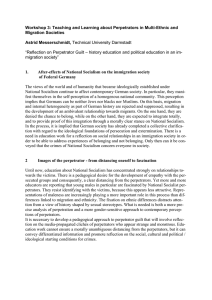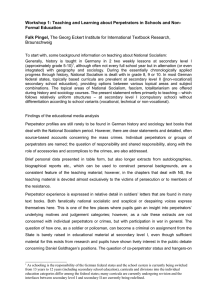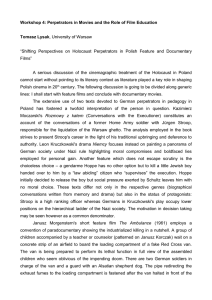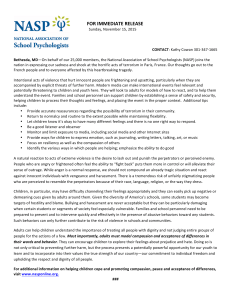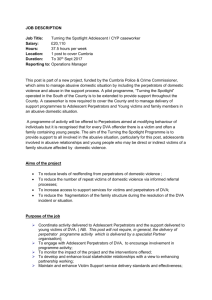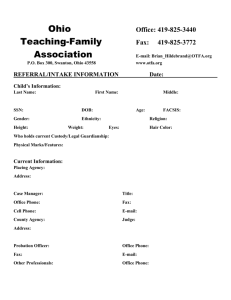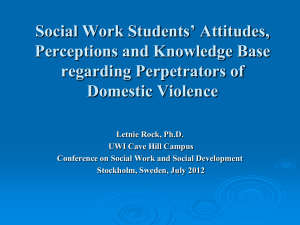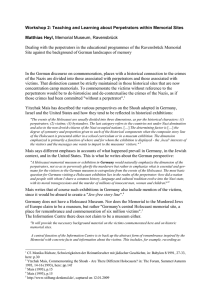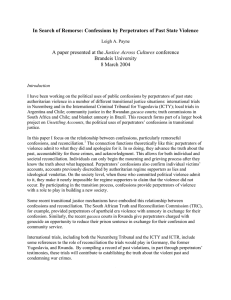Abstract: ‘Women as perpetrators’
advertisement
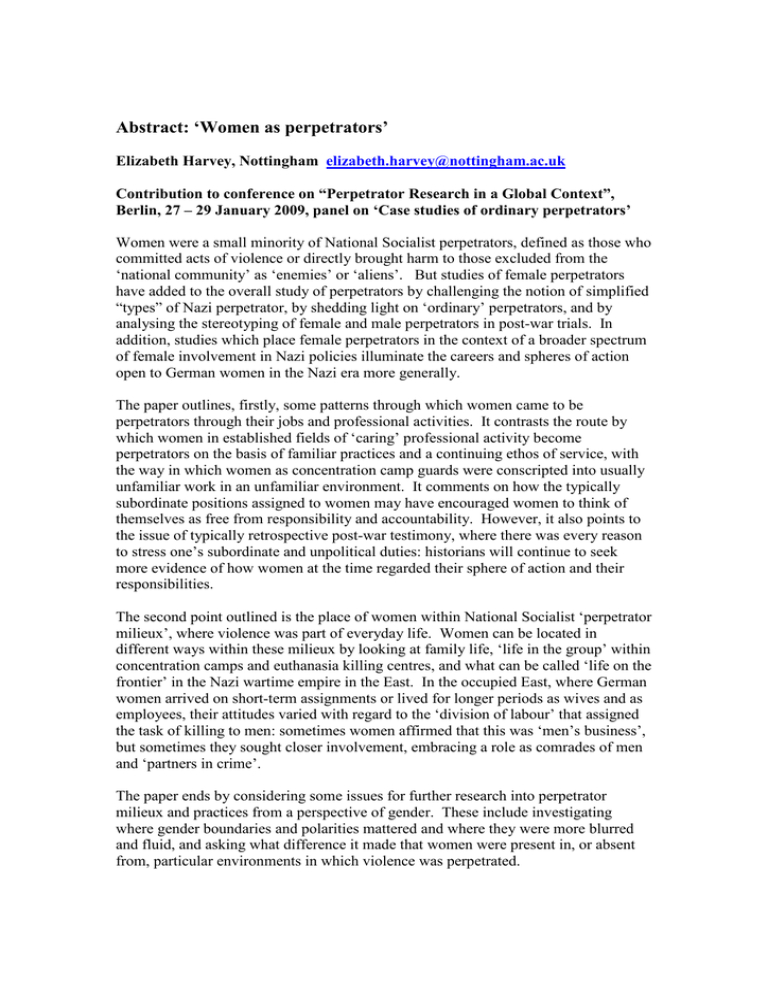
Abstract: ‘Women as perpetrators’ Elizabeth Harvey, Nottingham elizabeth.harvey@nottingham.ac.uk Contribution to conference on “Perpetrator Research in a Global Context”, Berlin, 27 – 29 January 2009, panel on ‘Case studies of ordinary perpetrators’ Women were a small minority of National Socialist perpetrators, defined as those who committed acts of violence or directly brought harm to those excluded from the ‘national community’ as ‘enemies’ or ‘aliens’. But studies of female perpetrators have added to the overall study of perpetrators by challenging the notion of simplified “types” of Nazi perpetrator, by shedding light on ‘ordinary’ perpetrators, and by analysing the stereotyping of female and male perpetrators in post-war trials. In addition, studies which place female perpetrators in the context of a broader spectrum of female involvement in Nazi policies illuminate the careers and spheres of action open to German women in the Nazi era more generally. The paper outlines, firstly, some patterns through which women came to be perpetrators through their jobs and professional activities. It contrasts the route by which women in established fields of ‘caring’ professional activity become perpetrators on the basis of familiar practices and a continuing ethos of service, with the way in which women as concentration camp guards were conscripted into usually unfamiliar work in an unfamiliar environment. It comments on how the typically subordinate positions assigned to women may have encouraged women to think of themselves as free from responsibility and accountability. However, it also points to the issue of typically retrospective post-war testimony, where there was every reason to stress one’s subordinate and unpolitical duties: historians will continue to seek more evidence of how women at the time regarded their sphere of action and their responsibilities. The second point outlined is the place of women within National Socialist ‘perpetrator milieux’, where violence was part of everyday life. Women can be located in different ways within these milieux by looking at family life, ‘life in the group’ within concentration camps and euthanasia killing centres, and what can be called ‘life on the frontier’ in the Nazi wartime empire in the East. In the occupied East, where German women arrived on short-term assignments or lived for longer periods as wives and as employees, their attitudes varied with regard to the ‘division of labour’ that assigned the task of killing to men: sometimes women affirmed that this was ‘men’s business’, but sometimes they sought closer involvement, embracing a role as comrades of men and ‘partners in crime’. The paper ends by considering some issues for further research into perpetrator milieux and practices from a perspective of gender. These include investigating where gender boundaries and polarities mattered and where they were more blurred and fluid, and asking what difference it made that women were present in, or absent from, particular environments in which violence was perpetrated.
